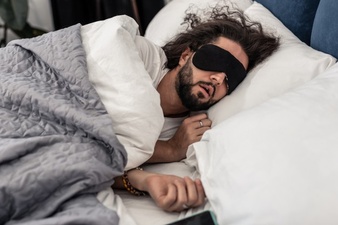When you sleep well during the night, you’ll notice how much more productive you are during the day. Regardless of your age, the following quick tips can help you make the most of your bedtime!
*Keep a consistent bedtime routine and leave it to your circadian rhythm to wake you up and get you to sleep naturally. It is crucial to keep your sleep-wake cycle consistent even on vacation, holidays or weekends when you would naturally want to sleep in.
*Work on creating a calming bedtime ritual that will prepare you for sleep. For some people, this may include breathing techniques or meditation, while others may choose warm milk, tea or a nice bath.
*Make sure that your bedroom is free of common electronic distractions and anything that may emit blue light. All of those things can negatively impact your ability to get to sleep at night. For example, keep mobile devices, television, and computers out of your bedroom. Lastly, give yourself at least an hour before bedtime away from smartphones as the blue light can interfere with sleep.
*Keeping your bedroom moderately cool can help you get to sleep faster and stay that way until morning. It is agreed that 65 degrees Fahrenheit is the happy middleground when it comes to bedroom temperature.
*Invest in the best mattress that suits your needs. Read this helpful Costco mattress guide and enjoy a restful night’s sleep.
*Caffeine and alcohol are great at giving you a last-minute energy boost, but they are also known to interfere with your sleep quality. Give yourself at least four hours before bedtime without caffeine or alcohol as doing so will ensure better sleep quality.
*If you feel tired or drowsy during the day, take a quick power nap that should be no more than 20 minutes. A longer nap may feel necessary, but it will actually make it harder to sleep during your bedtime hours.
*Lights and sounds are both disruptive to your sleep environment, so do what you reasonably can to keep them under control. For sounds, earplugs or a white noise machine can help. You can combat bright lights by either wearing a sleep mask or choosing quality blackout curtains or shades.
*If you have any medical problems that prevent you from getting the recommended amount of sleep, speak to your primary care provider. Anxiety, depression, narcolepsy, restless leg syndrome, and sleep apnea can all impact sleep.
